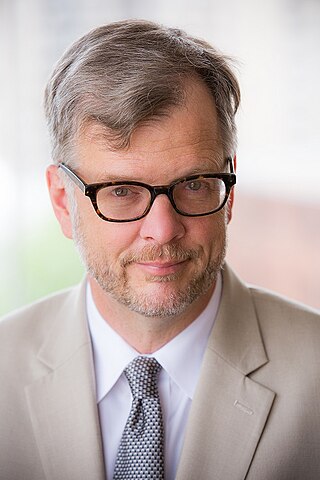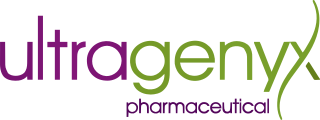A rare disease is a disease that affects a small percentage of the population. In some parts of the world, an orphan disease is a rare disease whose rarity means there is a lack of a market large enough to gain support and resources for discovering treatments for it, except by the government granting economically advantageous conditions to creating and selling such treatments. Orphan drugs are ones so created or sold.
An orphan drug is a pharmaceutical agent that is developed to treat certain rare medical conditions. An orphan drug would not be profitable to produce without government assistance, due to the small population of patients affected by the conditions. The conditions that orphan drugs are used to treat are referred to as orphan diseases. The assignment of orphan status to a disease and to drugs developed to treat it is a matter of public policy that depends on the legislation of the country.

AstraZeneca plc is an Anglo-Swedish multinational pharmaceutical and biotechnology company with its headquarters at the Cambridge Biomedical Campus in Cambridge, England. It has a portfolio of products for major diseases in areas including oncology, cardiovascular, gastrointestinal, infection, neuroscience, respiratory, and inflammation. It has been involved in developing the Oxford–AstraZeneca COVID-19 vaccine.

Amgen Inc. is an American multinational biopharmaceutical company headquartered in Thousand Oaks, California. One of the world's largest independent biotechnology companies, Amgen's Thousand Oaks staff in 2022 numbered approximately 5,000 and included hundreds of scientists, making Amgen the largest employer in Ventura County. As of 2022, Amgen has approximately 24,000 staff in total.

Eisai Co., Ltd. is a Japanese pharmaceutical company headquartered in Tokyo, Japan. It has some 10,000 employees, among them about 1,500 in research. Eisai is listed on the Tokyo Stock Exchange and is a member of the Topix 100 and Nikkei 225 stock indices.
BioMarin Pharmaceutical Inc. is an American biotechnology company headquartered in San Rafael, California. It has offices and facilities in the United States, South America, Asia, and Europe. BioMarin's core business and research is in enzyme replacement therapies (ERTs). BioMarin was the first company to provide therapeutics for mucopolysaccharidosis type I, by manufacturing laronidase. BioMarin was also the first company to provide therapeutics for phenylketonuria (PKU).
Santaris Pharma A/S was a biopharmaceutical company founded in 2003 in Copenhagen, Denmark. The company also had a branch in San Diego, California that opened in 2009. Created by a merger between Cureon and Pantheco, Santaris developed RNA-targeted medicines using a Locked Nucleic Acid (LNA) Drug Platform and Drug Development Engine.

Actelion is a pharmaceuticals and biotechnology company established in December 1997, headquartered in Allschwil near Basel, Switzerland.

The Orphan Drug Act of 1983 is a law passed in the United States to facilitate development of orphan drugs—drugs for rare diseases such as Huntington's disease, myoclonus, ALS, Tourette syndrome and muscular dystrophy which affect small numbers of individuals residing in the United States.
Alexion Pharmaceuticals, a subsidiary of AstraZeneca, is a pharmaceutical company headquartered in Boston, Massachusetts that specializes in orphan drugs to treat rare diseases.
Alnylam Pharmaceuticals, Inc. is an American biopharmaceutical company focused on the discovery, development and commercialization of RNA interference (RNAi) therapeutics for genetically defined diseases. The company was founded in 2002 and is headquartered in Cambridge, Massachusetts. In 2016, Forbes included the company on its "100 Most Innovative Growth Companies" list.
Horizon Therapeutics is a biopharmaceutical company focused on researching, developing, and commercializing medicines that address critical needs for people impacted by rare and rheumatic diseases. Horizon primarily markets products in the United States, which represented 97% of Horizon's 2019 worldwide sales.

Marathon Pharmaceuticals LLC was a privately held biopharmaceuticals company focused on drugs for people with rare diseases. The Illinois-based company developed and manufactured therapeutics and brought them to market. It employed 100 people in four global locations. In 2017, PTC Therapeutics acquired rights to Marathon Pharmaceuticals' drug Emflaza (deflazacort) for $140 million after criticism about their plan to sell the drug at a list price of $89,000 per year to sufferers despite the fact that the same drug was available in Canada and the UK for around $1,000 per year.

Henri A. Termeer was a Dutch biotechnology executive and entrepreneur who is considered a pioneer in corporate strategy in the biotechnology industry for his tenure as CEO at Genzyme. Termeer created a business model adopted by many others in the biotech industry by garnering steep prices— mainly from insurers and government payers— for therapies for rare genetic disorders known as orphan diseases that mainly affect children. Genzyme uses biological processes to manufacture drugs that are not easily copied by generic-drug makers. The drugs are also protected by orphan drug acts in various countries which provides extensive protection from competition and ensures coverage by publicly funded insurers. As CEO of Genzyme from 1981 to 2011, he developed corporate strategies for growth including optimizing institutional embeddedness nurturing vast networks of influential groups and clusters: doctors, private equity, patient-groups, insurance, healthcare umbrella organizations, state and local government, and alumni. Termeer was "connected to 311 board members in 17 different organizations across 20 different industries" He has the legacy of being the "longest-serving CEO in the biotechnology industry.

Timothy R. Coté is an American doctor, expert of infectious and neoplastic disease, and a former Director of the Office of Orphan Products Development (OOPD) at the Food and Drug Administration (FDA).
CSL Vifor is a global specialty pharmaceuticals company in the treatment areas of iron deficiency, dialysis, nephrology & rare disease. It is headquartered in Switzerland and consists of CSL Vifor, Vifor Fresenius Medical Care Renal Pharma (VFMCRP) and Sanifit Therapeutics.

Ultragenyx is an American biopharmaceutical company involved in the research and development of novel products for treatment of rare and ultra-rare genetic diseases for which there are typically no approved treatments and high unmet medical need. The company works with multiple drug modalities including biologics, small molecule, gene therapies, and ASO and mRNAs in the disease categories of bone, endocrine, metabolic, muscle and CNS diseases.











